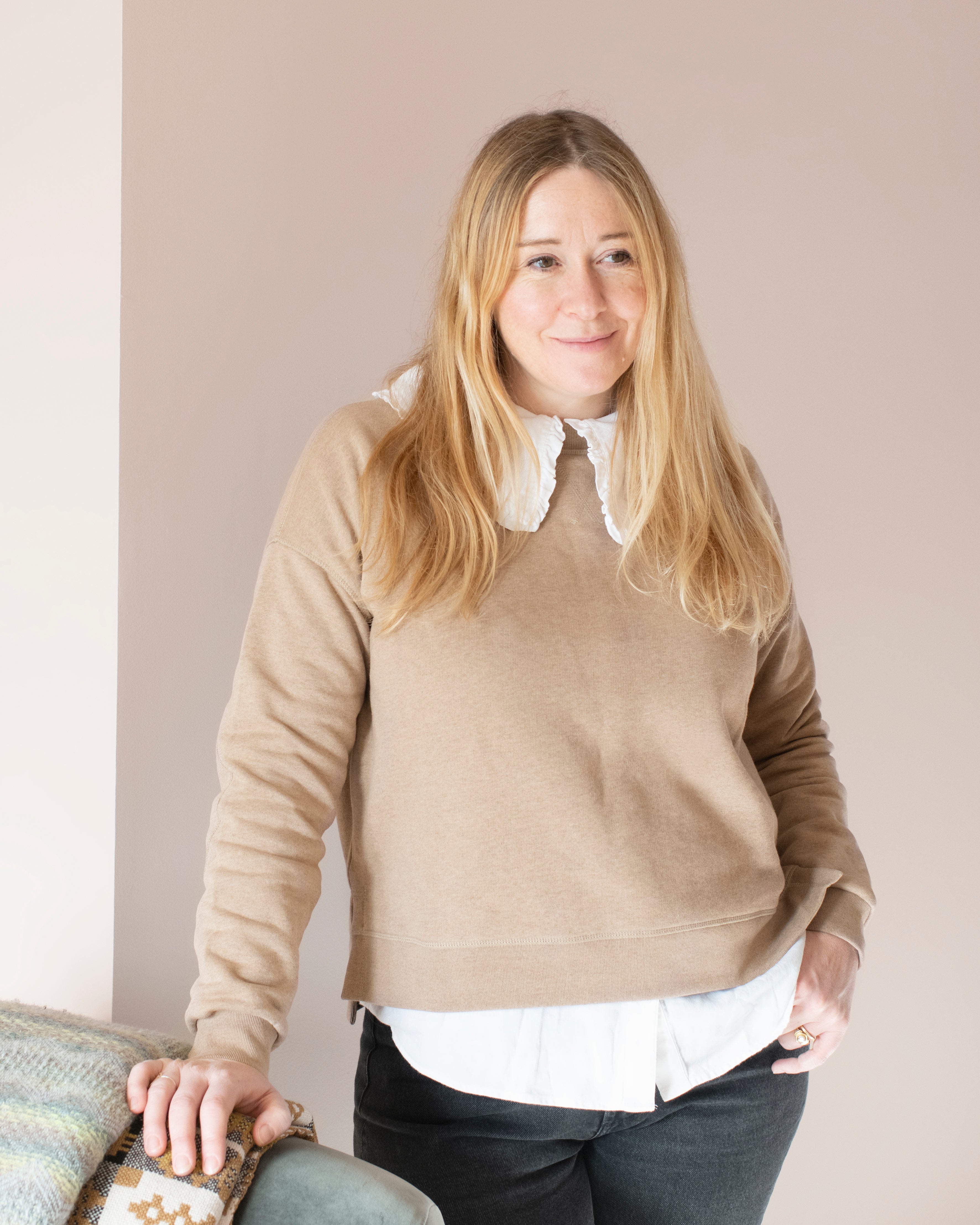Can you tell us how Treepoints came to be? What is it that TP does and does differently?
As individuals, we have long been worried about the impact of the climate crisis on our planet. During the pandemic, things fell quiet at Stasher, our travel tech company that connects travellers with an international luggage storage network. We decided that rather than waiting for the world to go back to normal, this was the perfect time to direct our energies towards doing something about climate change.
From speaking to friends and family, we understood that lots of people are increasingly concerned about the climate crisis, but that knowing how to actually do something meaningful about it is a daunting prospect. How can you be sure that your money is making a positive difference? As just one person, what can you really do? These questions came up time and time again, and from this the idea for Treepoints was born.

Our goal is to provide everyday individuals and businesses with a simple way to take meaningful climate action. We help people understand their carbon footprint and then do something about it through offsetting their emissions. It is vital to us that climate action is affordable and accessible to everyone - a subscription to offset your entire carbon footprint costs just £3.25 per month.
And what do we do differently? We strongly believe that good actions deserve rewarding, and that people should feel good about taking climate action. This is why we built the Treepoints rewards platform. Every time a subscriber makes a donation, they earn points. These can then be spent on the rewards platform with eco-friendly partner brands such as Grind coffee, Patch Plants, and Brewdog beer. You can also earn points for referring your friends and family, incentivising people to spread the word about taking climate action.
We’re also curate a range of projects, there’s a lot of people out there planting trees, but there’s not any offering a planet positive subscription consisting of both plastic recycling, carbon reduction... and tree planting. Not to mention the projects that we work with go through a rigorous selection process, and we only select schemes that have been externally verified to the highest level by internationally recognised organisations including the Gold Standard and the Verified Carbon Standard. In this way, we can guarantee people that their donations are having a meaningful, quantifiable impact.

What are some of the challenges that you have had since you’ve been in business?
For all of us, it’s hard not to be overwhelmed by the scale of the climate crisis. The first step is accepting that doing something, even if it feels like just a drop in the ocean, is better than doing nothing. And don’t be disheartened by people telling you that what you’re doing won’t have an impact. Another challenge is that unfortunately it’s often more expensive to be sustainable than not. Hopefully this will change as sustainable materials and practices become the norm, but for now this is definitely a challenge especially for small businesses who have limited financial resources.
So we launched in beta in November 2020, using a lot of the experience we had gained from starting Stasher from scratch in 2015. Many of the skills were transferable i.e. creating a suitable business model, setting up a website, finding partners + gaining traction and momentum.
Probably the biggest challenge we hadn’t faced before was doing this all remotely. One of the best things about starting from the ground-up is the energy and creativity that comes from us all putting our heads together, and the long conversations that come as a result. We’ve quickly found this is not quite the same when done virtually on video-calls. So solutions to problems or ‘world-changing ideas’ are definitely harder to come by than pre-pandemic.
Not to mention sales. When we launched Stasher we were going door-to-door, pitching to investors, entering competitions, flyering and over time had developed a playbook that we could pass on and refine with new staff. This had to be completely re-written for Treepoints, as we had no choice but to alter and adapt the strategies we used previously to generate good, qualified leads as well as reaching customers directly.

What are some of the highlights?
There’s been so many! We’re very close to 100,000 trees which will definitely be a highlight. Featured in Forbes, Fast company and the Independent.
Partnered with so many amazing brands, from local independents all the way to FTSE 100 companies. Featured 17th on TechRound’s top 100 company list. Planted 13,000 trees at London’s largest sustainable event.
Jacob and I were recognised as 29U29 for our contributions towards fighting climate change. Treepoints also became a social enterprise this year and we are now a B Corp pending, and to add to that we’ve been nominated for social enterprises ‘up and coming’ startup of the year.
How are you feeling over there post COP26? Any thoughts to share on what needs to really happen to put us on the right course?
I guess the fact that a final agreement came to fruition is a huge success. With significant differences and growing global tensions, especially between the US and China, we had doubted any agreement signed by all 197 parties would be possible. That being said, the failure to create an agreement to keep global temperature rises below 1.5C from pre-industrial levels is an undeniable failure of the conference.
We always say at Treepoints, the sum of individual action inspires collective action and this in turn influences legislation at government level. So of course change from the top is the most important, but for this to happen we all need to play our part.
Back to the day job! Can you paint a picture of a typical day behind the scenes at Treepoints HQ
A typical day at Treepoints HQ would start with a cycle into the office, grab some porridge, and then start work at 10 (we take some emails and calls from home). We used to start the day with ‘stand-ups’ - a quick update with what everybody is working on, but we’ve moved these until after lunch so everybody has the chance to be productive in the morning.
A standard day would consist of routine tasks, meetings and calls etc. We’ll also spend time researching and selecting projects, and speaking to partners. It’s likely we may be doing interviews or keynote presentations along with meeting people for coffee and lunch. If it’s a good day we’ll be shooting some creative content at Dream Factory (our local studio).

One thing which we prioritise is team lunches pretty much most days, we find it really important to take 45-minutes to 1 hour as a team to relax and actually enjoy our food as opposed to eating at our desks. Creating this kind of culture actually impacts productivity in a positive way, as people have a chance to switch-off and feel energised for the afternoon. A typical day would finish around 18:00-18:30 and then we’d probably head to the gym.
What are the next 5 years looking like for Treepoints?
Our vision for Treepoints is to see it become the TrustPilot-equivalent stamp of Sustainability. People know the brand and expect to see it on products, services, and companies. Individuals everywhere in the developed world understand what carbon offsetting means and offset their footprint with Treepoints. Our goal is to become a household name for sustainability, being the easiest subscription, API integration and tree planting service for individuals and businesses alike.
We will achieve this by continuing to add partners and members to our platform and investing in marketing to reach a wider potential audience, educating people about the importance of offsetting.
We also have ambitions to become a source of funding for green projects, able to finance carbon reduction schemes. As a social enterprise, we are committed to reinvesting at least 50% of our profits, and we hope to easily achieve profitability within the next 5 years to be able to start reinvesting in environmental projects, such as carbon capture technology. This will also enable us to have a greater level of personal contact with the projects that we are supporting.
We also plan to add a green finance plan, helping people to understand the impact of their purchasing habits on the environment. This may include an open banking integration or similar so that people can see the carbon footprint of the products they buy, the journeys they make, and their lifestyle choices.
Is there a goal where you feel the business has succeeded or fulfilled its mission?
We’ve pledged to plant 100 million trees by 2030. That pledge will see us plant over 1 tree for each person living in the UK by 2030 and will have captured around 30,807,250 tonnes of CO2e by 2080.
And although planting 100 million trees will not ‘fulfil our mission’, it will definitely reflect our seriousness here at Treepoints in halting the climate crisis. And so in terms of a measure of success, that is definitely one that we would consider a success in terms of doing everything we can to create a healthy world for future generations.
This is a great example for us to learn more about other brands and businesses that inspire you- Are there any businesses you want to shout about?
Yes of course! We’re huge fans of Ocean Bottle, who are tackling the enormous problem of single-use plastic polluting our seas. For every bottle they sell, they fund the collection of the equivalent to 1,000 plastic bottles. This also provides a stable source of employment and income for plastic collectors around the world. This is a great example of a brand having a positive impact at every step of their supply chain.
Our current beer of choice is Toast Ale, who are making craft beer out of surplus fresh bread. This is a great way of reducing food waste and their beer is delicious too. They also give all their profits to charity, which I think is a great example to us all of a brand working purely for social and environmental good.
We also really admire Veja’s commitment to transparency and environmental responsibility with their trainers. They set the standard that all fashion brands should be following when it comes to collaborating with their suppliers and factories and disclosing details about how their products are made.
Can you share any tricks or tips that you do to lighten your carbon footprint or improve your sustainability in work or personal life?
Number one would be eating less meat and dairy products, which are a big contributor to greenhouse gas emissions. Also, avoiding fast fashion and investing instead in clothes that are sustainably produced and will last for a long time.
Offset your carbon footprint. This is a really easy way for everyone to take responsibility for their impact on the planet and support amazing green initiatives around the world.

Anything else you would like to add?
To reduce your company’s carbon footprint, think about what carbon-emitting activities could be avoided. For example, do your employees really need to fly around the world for meetings or could they be done over video call? Could you instate a work from home policy so that people aren’t commuting as much and using their car, alternatively could you create a cycle to work scheme? Small changes like this will significantly reduce your company’s impact on the environment.Inevitably, there will always be some CO2 emissions that can’t be avoided. Whether this is a flight or electricity, it is impossible to completely eliminate your carbon footprint. The best way to deal with this is carbon offsetting. This means supporting projects that reduce carbon emissions (such as planting trees or investing in renewable energy projects), so that your net carbon emissions are zero.
This is called being carbon neutral. At Treepoints we would ask why stop at carbon neutral, why not become climate positive? This means you’re actually having a positive impact on the planet and working towards a sustainable future.





Leave a comment
This site is protected by hCaptcha and the hCaptcha Privacy Policy and Terms of Service apply.